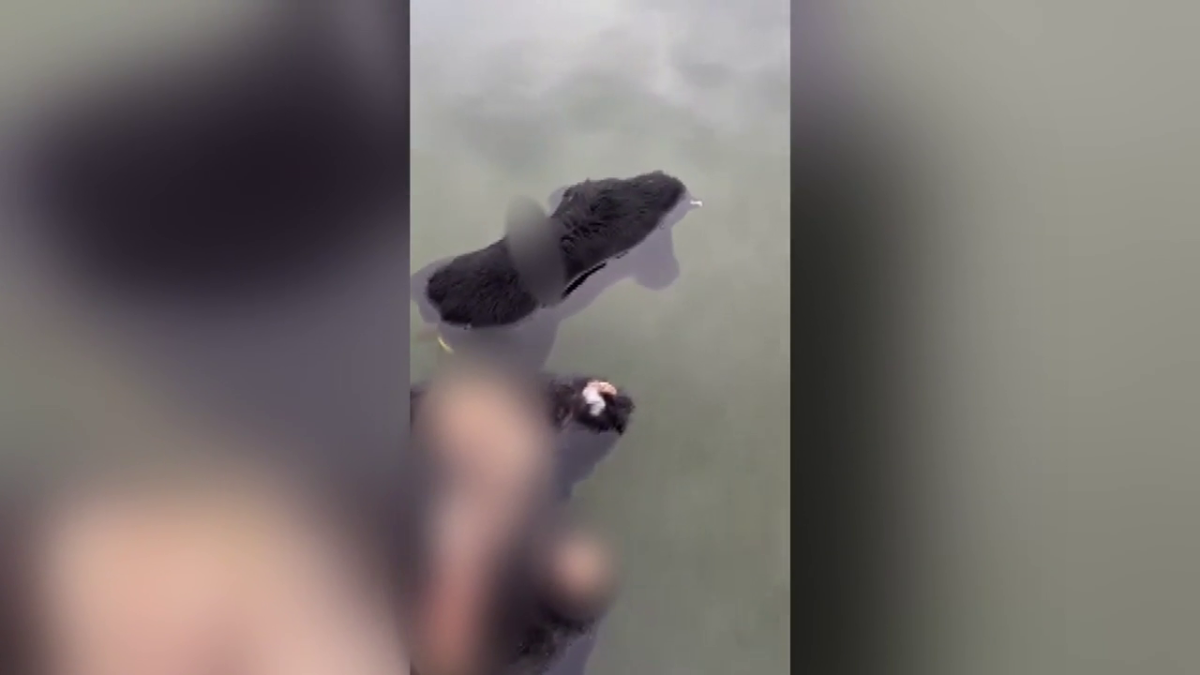WARNING: The details and an image in this story are disturbing. Discretion is advised.

A B.C. fisherman is speaking out after making a grim discovery over the weekend.
Yves Bisson with Fraser River Sturgeon Fishing Charters was on the Harrison River near Chilliwack when he discovered two dead black bears tied together and floating in the water.
Shockingly, the bears had no paws and their stomachs were cut open.
“I’d just finished a trip and I was just heading up the Harrison to do some personal fishing and it was getting close to dark and I just noticed something floating down the river,” Bisson told Global News.
“I didn’t know what to think … It was disturbing, It was awful,” he added.
“Right away I was a bit freaked out. I’d never seen that, been driving this river for 30 years.”
Bisson initially posted the images to social media, asking for advice on what to do.
“I had no clue so a lot of people were like, ‘This is the hand of poachers, they take the gallbladder and the paws,'” Bisson said.

Michael Howie, a spokesperson for the Fur-Bearers, called the incident “very upsetting” and “disturbing.”

Get breaking National news
“Unfortunately, there is international demand for various parts of animals. Wildlife trafficking is a very large global criminal industry and it’s not exactly gone in Canada,” he added.
According to Monitor Conservation Research Society, bear poaching is “driven by demand for their gall bladders and bile, which are highly valuable ingredients in traditional medicines used to treat a variety of ailments such as the flu, sores, hemorrhoids, sprains, epilepsy, and liver diseases.”
“Sadly, this leads to the very, very poor treatment of wildlife such as black bears, both in captivity and in the wild,” Howie said.
He added that bear paws can be used as trophies.
“They may also be used in various other traditional means. But ultimately, again (it) is choosing to put one’s own personal gain or need above that of the law, above that of what people in British Columbia and Canada consider acceptable when it comes to the treatment of animals and wildlife.”
The Conservation Officer Service confirmed they received a report on Oct. 5 and is investigating the incident.
“As this investigation remains ongoing, we are unable to provide further details at this time,” the organization said in a statement.
Anyone with information is asked to call the Report All Poachers and Polluters (RAPP) line at 1-877-952-7277.
- Ontario man accused of assaulting alleged home intruder has charges withdrawn
- Judge in Stronach trial concerned as cross-examination turns to ‘shouting match’
- RCMP puppies need names, Canadian children invited to submit suggestions
- Canadian border shooting: New Hampshire man charged after shot fired at U.S. agent










Comments
Comments closed.
Due to the sensitive and/or legal subject matter of some of the content on globalnews.ca, we reserve the ability to disable comments from time to time.
Please see our Commenting Policy for more.